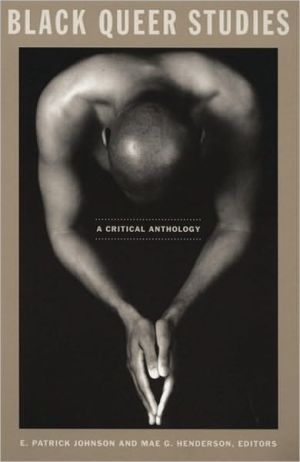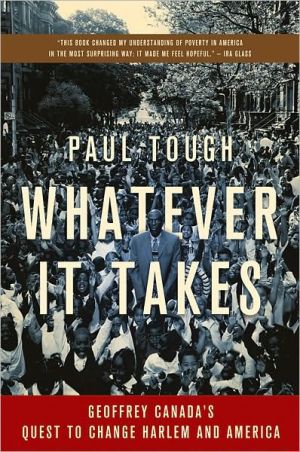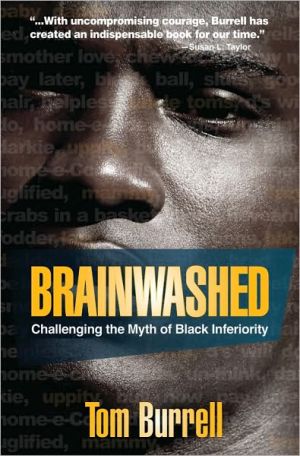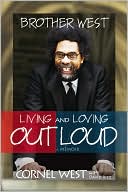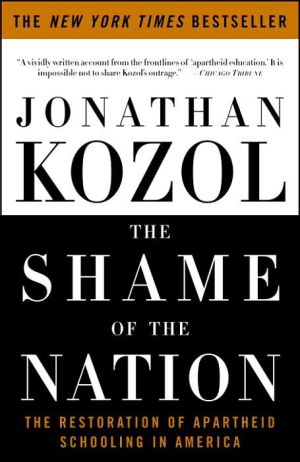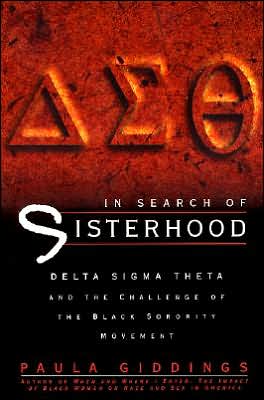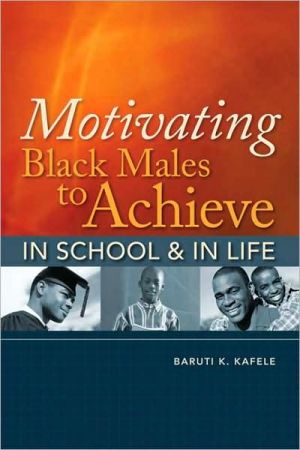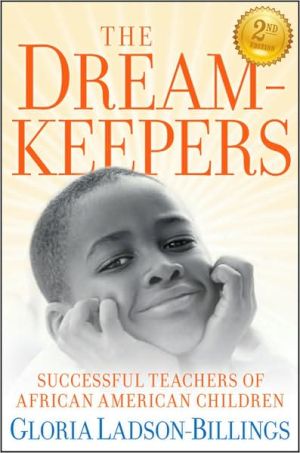Black Queer Studies: A Critical Anthology
While over the past decade a number of scholars have done significant work on questions of black lesbian, gay, bisexual, and transgendered identities, this volume is the first to collect this groundbreaking work and make black queer studies visible as a developing field of study in the United States. Bringing together essays by established and emergent scholars, this collection assesses the strengths and weaknesses of prior work on race and sexuality and highlights the theoretical and...
Search in google:
A groundbreaking collection of sixteen essays that examines the productive intersection of the fields of black and queer studies.
BLACK QUEER STUDIES\ A CRITICAL ANTHOLOGY \ \ DUKE UNIVERSITY PRESS\ Copyright © 2005 Duke University Press\ All right reserved. \ ISBN: 978-0-8223-3629-7 \ \ \ \ Chapter One\ CATHY J. COHEN\ PUNKS, BULLDAGGERS, AND WELFARE QUEENS: THE RADICAL POTENTIAL OF QUEER POLITICS?\ On the eve of finishing this essay, my attention is focused not on how to rework the conclusion (as it should be) but instead on the news stories of alleged racism at Gay Men's Health Crisis (GMHC). It seems that three black board members of this largest and oldest aids organization in the world have resigned over their perceived subservient position on the GMHC board. Billy E. Jones, former head of the New York City Health and Hospitals Corporation and one of the board members who quit, was quoted in the New York Times as saying that "much work needs to be done at GMHC to make it truly inclusive and welcoming of diversity.... It is also clear that such work will be a great struggle. I am resigning because I do not choose to engage in such struggle at GMHC, but rather prefer to fight for the needs of those ravaged by H.I.V."\ This incident raises mixed emotions for me, for it points to the continuing practice of racism that many of us experience on a daily basis in lesbian and gay communities. But, just as disturbing, it also highlightsthe limits of a lesbian and gay political agenda based on a civil rights strategy, where assimilation into, and replication of, dominant institutions are the goals. Many of us continue to search for a new political direction and agenda, one that does not focus on integration into dominant structures but instead seeks to transform the basic fabric and hierarchies that allow systems of oppression to persist and operate efficiently. For some of us, such a challenge to traditional gay and lesbian politics was offered by the idea of queer politics. Here we had a potential movement of young antiassimilationist activists committed to challenging the very way that people understand and respond to sexuality. These activists promised to engage in struggles that would disrupt dominant norms of sexuality, radically transforming politics in lesbian, gay, bisexual, and transgendered communities.\ Despite the possibility invested in the idea of queerness and the practice of queer politics, I argue here that a truly radical or transformative politics has not resulted from queer activism. In many instances, instead of destabilizing the assumed categories and binaries of sexual identity, queer politics has served to reinforce simple dichotomies between the heterosexual and everything "queer." An understanding of the ways in which power informs and constitutes privileged and marginalized subjects on both sides of this dichotomy has been left unexamined.\ I query in this essay whether there are lessons to be learned from queer activism that can help us construct a new politics. I envision a politics where one's relation to power, and not some homogenized identity, is privileged in determining one's political comrades. I am talking about a politics where the nonnormative and marginal position of punks, bulldaggers, and welfare queens, for example, is the basis for progressive transformative coalition work. Thus, if any truly radical potential is to be found in the idea of queerness and the practice of queer politics, it would seem to be located in its ability to create a space in opposition to dominant norms, a space where transformational political work can begin.\ THE EMERGENCE OF QUEER POLITICS AND A NEW POLITICS OF TRANSFORMATION\ Theorists and activists alike generally agree that it was not until the early 1990s that the term "queer" began to be used with any regularity. This term would come to denote not only an emerging politics but also a new cohort of academics working in programs primarily in the humanities centered around social and cultural criticism. Individuals such as Judith Butler, Eve Sedgwick, Teresa de Lauretis, Diana Fuss, and Michael Warner produced what are now thought of as the first canonical works of "queer theory." Working from a variety of postmodernist and poststructuralist theoretical perspectives, these scholars focused on identifying and contesting the discursive and cultural markers found within both dominant and marginal identities and institutions that prescribe and reify "heterogendered" understandings and behavior. These theorists presented a dierent conceptualization of sexuality, one that sought to replace socially named and presumably stable categories of sexual expression with a new fluid movement among and between forms of sexual behavior.\ Through its conception of a wide continuum of sexual possibilities, queer theory stands in direct contrast to the normalizing tendencies of hegemonic sexuality rooted in ideas of static, stable sexual identities and behaviors. In queer theorizing, the sexual subject is understood to be constructed and contained by multiple practices of categorization and regulation that systematically marginalize and oppress those subjects thereby defined as deviant and "other." And, at its best, queer theory focuses on and makes central not only the socially constructed nature of sexuality and sexual categories, but also the varying degrees and multiple sites of power distributed within all categories of sexuality, including the normative category of heterosexuality.\ It was in the early 1990s, however, that the postmodern theory being produced in the academy (later to be recategorized as queer theory) found its most direct interaction with the real-life politics of lesbian, gay, bisexual, and transgendered activists. Frustrated with what was perceived to be the scientific "de-gaying" and assimilationist tendencies of AIDS activism, with their invisibility in the more traditional civil rights politics of lesbian and gay organizations, and with increasing legal and physical attacks against lesbian and gay community members, a new generation of activists began the process of building a more confrontational political formation, which they labeled "queer politics." Queer politics, represented most notoriously in the actions of the group Queer Nation, is understood as an "in your face" politics of a younger generation. Through action and analysis these individuals seek to make "queer" function as more than just an abbreviation for lesbian, gay, bisexual, and transgendered. Similar to queer theory, the queer politics articulated and pursued by these activists first and foremost recognizes and encourages the fluidity and movement of people's sexual lives. In queer politics sexual expression is something that always entails the possibility of change, movement, redefinition, and subversive performance-from year to year, from partner to partner, from day to day, and even from act to act. In addition to highlighting the instability of sexual categories and sexual subjects, queer activists also directly challenge the multiple practices and vehicles of power that render them invisible and at risk. However, what seems to make queer activists unique, at this particular moment, is their willingness to confront normalizing power by emphasizing and exaggerating their own antinormative characteristics and nonstable behavior. Joshua Gamson, in "Must Identity Movements Self-Destruct? A Queer Dilemma," writes that\ queer activism and theory pose the challenge of a form of organizing in which, far from inhibiting accomplishments, the destabilization of collective identity is itself a goal and accomplishment of collective action. The assumption that stable collective identities are necessary for collective action is turned on its head by queerness, and the question becomes: When and how are stable collective identities necessary for social action and social change? Secure boundaries and stabilized identities are necessary not in general, but in the specific, a point social movement theory seems currently to miss.\ Thus queer politics, much like queer theory, is often perceived as standing in opposition, or in contrast, to the category-based identity politics of traditional lesbian and gay activism. And for those of us who find ourselves on the margins, operating through multiple identities and thus not fully served or recognized through traditional single-identity-based politics, theoretical conceptualizations of queerness hold great political promise. For many of us, the label "queer" symbolizes an acknowledgment that through our existence and everyday survival we embody sustained and multi-sited resistance to systems (based on dominant constructions of race and gender) that seek to normalize our sexuality, exploit our labor, and constrain our visibility. At the intersection of oppression and resistance lies the radical potential of queerness to challenge and bring together all those deemed marginal and all those committed to liberatory politics.\ The problem, however, with such a conceptualization and expectation of queer identity and politics is that in its present form queer politics has not emerged as an encompassing challenge to systems of domination and oppression, especially those normalizing processes embedded in heteronormativity. By "heteronormativity" I mean both those localized practices and those centralized institutions that legitimize and privilege heterosexuality and heterosexual relationships as fundamental and "natural" within society. I raise the subject of heteronormativity because it is this normalizing practice/ power that has most often been the focus of queer politics.\ The inability of queer politics to effectively challenge heteronormativity rests, in part, on the fact that despite a surrounding discourse that highlights the destabilization and even deconstruction of sexual categories, queer politics has often been built around a simple dichotomy between those deemed queer and those deemed heterosexual. Whether in the infamous "I Hate Straights" publication or in queer kiss-ins at malls and straight dance clubs, very near the surface in queer political action is an uncomplicated understanding of power as it is encoded in sexual categories: all heterosexuals are represented as dominant and controlling and all queers are understood as marginalized and invisible. Thus, even in the name of destabilization, some queer activists have begun to prioritize sexuality as the primary frame through which they pursue their politics. Undoubtedly, within different contexts various characteristics of our total being-for example, race, gender, class, sexuality-are highlighted or called on to make sense of a particular situation. However, my concern is centered on those individuals who consistently activate only one characteristic of their identity, or a single perspective of consciousness, to organize their politics, rejecting any recognition of the multiple and intersecting systems of power that largely dictate our life chances.\ The focus of this essay is the disjuncture, evident in queer politics, between an articulated commitment to promoting an understanding of sexuality that rejects the idea of static, monolithic, bounded categories, on the one hand, and political practices structured around binary conceptions of sexuality and power, on the other. Specifically, I am concerned with those manifestations of queer politics in which the capital and advantage invested in a range of sexual categories are disregarded and, as a result, narrow and homogenized political identities are reproduced that inhibit the radical potential of queer politics. It is my contention that queer activists who evoke a single-oppression framework misrepresent the distribution of power within and outside of gay, lesbian, bisexual, and transgendered communities, and therefore limit the comprehensive and transformational character of queer politics.\ Recognizing the limits of current conceptions of queer identities and queer politics, I am interested in examining the concept of "queer" in order to think about how we might construct a new political identity that is truly liberating, transformative, and inclusive of all those who stand on the outside of the dominant constructed norm of state-sanctioned white middle- and upper-class heterosexuality. Such a broadened understanding of queerness must be based on an intersectional analysis that recognizes how numerous systems of oppression interact to regulate and police the lives of most people. Black lesbian, bisexual, and heterosexual feminist authors such as Kimberle Crenshaw, Barbara Ransby, Angela Davis, Cheryl Clarke, and Audre Lorde have repeatedly emphasized in their writing the intersectional workings of oppression. And it is just such an understanding of the interlocking systems of domination that is noted in the opening paragraph of the now famous black feminist statement by the Combahee River Collective: "The most general statement of our politics at the present time would be that we are actively committed to struggling against racial, sexual, heterosexual, and class oppression and see as our particular task the development of integrated analysis and practice based upon the fact that the major systems of oppression are interlocking. The synthesis of these oppressions creates the conditions of our lives. As Black women we see Black feminism as the logical political movement to combat the manifold and simultaneous oppressions that all women of color face." This analysis of an individual's place in the world, which focuses on the intersection of systems of oppression, is informed by a consciousness that undoubtedly grows from the lived experience of existing within and resisting multiple and connected practices of domination and normalization. Just such a lived experience and analysis have determined much of the progressive and expansive nature of the politics emanating from people of color-people who are both inside and outside of lesbian and gay communities.\ However, beyond a mere recognition of the intersection of oppressions there must also be an understanding of the ways our multiple identities work to limit the entitlement and status that some receive from obeying a heterosexual imperative. For instance, how would queer activists understand politically the lives of women (particularly women of color) on welfare, who may fit into the category of heterosexual but whose sexual choices are not perceived as normal, moral, or worthy of state support? Further, how do queer activists understand and relate politically to those whose same-sex sexual identities position them within the category of queer, but who hold other identities based on class, race, and/or gender categories that provide them with membership in and the resources of dominant institutions and groups?\ Thus, inherent in our new politics must be a commitment to Left analysis and politics. Black feminists as well as other marginalized and progressive scholars and activists have long argued that any political response to the multilayered oppression that most of us experience must be rooted in a Left understanding of our political, economic, social, and cultural institutions. Fundamentally, a Left framework makes central the interdependency among multiple systems of domination. Such a perspective also ensures that while activists should rightly be concerned with forms of discursive and cultural coercion, we also recognize and confront the more direct and concrete forms of exploitation and violence rooted in state-regulated institutions and economic systems. The "Statement of Purpose" from the first Dialogue on the Lesbian and Gay Left comments specifically on the role of interlocking systems of oppression in the lives of gays and lesbians: "By leftist we mean people who understand the struggle for lesbian and gay liberation to be integrally tied to struggles against class oppression, racism and sexism. While we might use different political labels, we share a commitment to a fundamental transformation of the economic, political and social structures of society."\ (Continues...)\ \ \ \ \ Excerpted from BLACK QUEER STUDIES Copyright © 2005 by Duke University Press. Excerpted by permission.\ All rights reserved. No part of this excerpt may be reproduced or reprinted without permission in writing from the publisher.\ Excerpts are provided by Dial-A-Book Inc. solely for the personal use of visitors to this web site. \ \
Foreword : "home" is a four-letter wordIntroduction : queering black studies/"quaring" queer studies1Punks, bulldaggers, and welfare queens : the radical potential of queer politics?21Race-ing homonormativity : citizenship, sociology, and gay identity52Straight black studies : on African American studies, James Baldwin, and black queer studies68Outside in black studies : reading from a queer place in the diaspora90The evidence of felt intuition : minority experience, everyday life, and critical speculative knowledge106"Quare" studies, or (almost) everything I know about queer studies I learned from my grandmother124Beyond the closet as raceless paradigm161Privilege190"Joining the lesbians" : cinematic regimes of black lesbian visibility213Why are gay ghettoes white?228Embracing the teachable moment : the black gay body in the classroom as embodied text249Are we family? : pedagogy and the race for queerness266On being a witness : passion, pedagogy, and the legacy of James Baldwin276But some of us are brave lesbians : the absence of black lesbian fiction289James Baldwin's Giovanni's Room : expatriation, "racial drag," and homosexual panic298Robert O'Hara's Insurrection : "que(e)rying history"323
\ From the Publisher“Black Queer Studies makes a dynamic contribution to the shifting landscape of queer studies. This volume will surely transform our understandings of both black studies and queer studies, and it will create new idioms for the analysis and theorization of race and sexuality. Black Queer Studies is necessary and long overdue.”—Judith Halberstam, author of Female Masculinity\ “There are moments of epistemological excitement that recognize changes already ongoing, and then there are moments that at the same time both recognize and generate new ways of knowing. The creation of Black Queer Studies: A Critical Anthology is such a moment. It changes our horizons of thought. I’m excited about its effect on my thinking and grateful to the contributors and editors for the boundary stretching.”—Wahneema Lubiano, editor of The House That Race Built\ “This fine collection of essays demonstrates the importance of black queer quests and questions.”—Jennifer DeVere Brody, author of Impossible Purities: Blackness, Femininity, and Victorian Culture\ \ \
